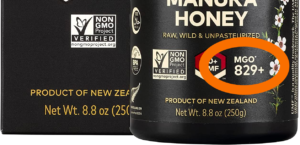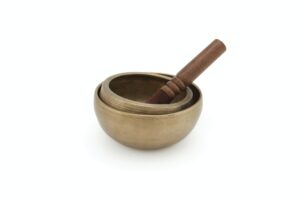Table of Contents
Manuka Honey Health Benefits: Alleviating Arthritis Symptoms
Introduction
Arthritis is a common condition characterized by joint inflammation, affecting approximately 58 million adults in the U.S. This painful condition significantly impacts one’s quality of life. While medications can provide relief, their regular use often comes with side effects. As a result, many individuals are turning to natural remedies to alleviate their arthritis symptoms. Two natural remedies that have gained attention are manuka honey and propolis. In this blog post, we will explore the potential health benefits of manuka honey and propolis individually for arthritis relief, based on scientific research.
What is Arthritis?
Arthritis is a condition characterized by inflammation of the joints, leading to pain and stiffness. It can affect people of all ages, but is more common among older adults. The most common types of arthritis include osteoarthritis and rheumatoid arthritis. Osteoarthritis occurs when the cartilage that cushions the ends of bones wears down over time, causing pain and restricted movement. Rheumatoid arthritis, on the other hand, is an autoimmune disorder where the immune system mistakenly attacks the joints, resulting in inflammation.
What is Manuka Honey?
Manuka honey is a type of honey that is made in New Zealand and Australia by bees that pollinate the manuka tree. It contains a compound called methylglyoxal (MGO), which is not found in other types of honey. This compound gives manuka honey its unique antibacterial, anti-inflammatory, and antioxidant properties. These properties make manuka honey a potential natural remedy for arthritis.
Benefits & Mechanisms of Action of Manuka Honey for Arthritis
The unique antibacterial and anti-inflammatory properties of manuka honey are attributed to its high methylglyoxal (MGO) content. MGO has been shown to have both antibacterial and anti-inflammatory effects, which may help reduce joint inflammation and alleviate arthritis symptoms. Additionally, manuka honey is rich in bioactive compounds with antioxidant properties, such as MGO. These compounds can scavenge harmful free radicals that contribute to joint inflammation and damage in arthritis.
How to Use Manuka Honey for Arthritis
There are several ways to use manuka honey to alleviate arthritis symptoms. It can be consumed orally by incorporating it into your diet. For example, you can add manuka honey to your tea, yogurt, or use it as a sweetener in recipes. Consuming one tablespoon of manuka honey a day straight up is another option.
Manuka honey can also be applied topically to the affected joints as a natural topical ointment. It is recommended to mix the honey with a carrier oil, such as castor oil. Additionally, you can add propolis and even manuka oil to enhance the effects.
What is Propolis?
Propolis is a bee-made resin that is produced by bees using plant resins, a bit of honey, and a little bee saliva. Bees use propolis to fill in small cracks in the beehive, maintain hive temperature, prevent predators from entering, and protect against dangerous microbes and fungi. Propolis has also been found to have potential health benefits for arthritis relief.
Benefits & Mechanisms of Action of Propolis for Arthritis
The antioxidant and anti-inflammatory effects of propolis are attributed to its high content of flavonoids. Flavonoids have been shown to have antioxidant and anti-inflammatory effects, which may help reduce joint inflammation and alleviate arthritis symptoms.
How to Use Propolis for Arthritis
Propolis can be consumed orally by taking it in the morning. While there are no official dosage recommendations, a recommended dose is ½ – 1 dropper daily. Place the propolis under your tongue and allow it to dissolve. If you dislike the flavor, you can place the propolis in a glass of juice and drink it slowly.
Propolis can also be applied topically to the skin. It is recommended to mix it with a carrier oil, such as castor oil, before applying.
Disclaimers & Known Drug Interactions
It is important to note that neither manuka honey nor propolis has known severe, serious, moderate, or mild interactions with other drugs. However, caution should be exercised when combining propolis with medications that slow blood clotting (Anticoagulant / Antiplatelet drugs). Propolis is thought to slow blood clotting, although more studies need to be conducted on this topic.
Additionally, allergic reactions, such as skin or respiratory symptoms, may occur, particularly in people who are allergic to bees or bee products. If you experience any allergic reactions, it is important to seek medical attention.
Conclusion
In conclusion, both manuka honey and propolis have potential health benefits for alleviating arthritis symptoms. Manuka honey’s unique antibacterial and anti-inflammatory properties, attributed to its high methylglyoxal (MGO) content, make it a promising natural remedy. Propolis, on the other hand, with its antioxidant and anti-inflammatory effects, thanks to its high flavonoid content, also shows potential for arthritis relief. However, it is important to consult with a healthcare professional before starting any new treatment, including the use of natural remedies like manuka honey and propolis.



